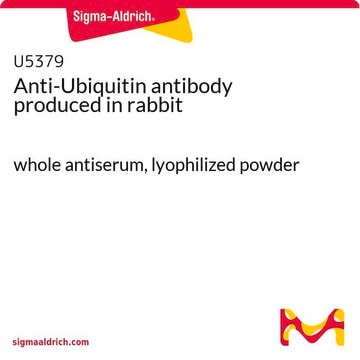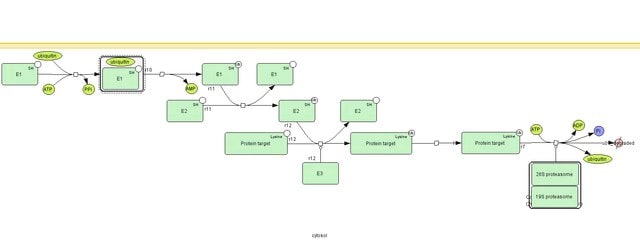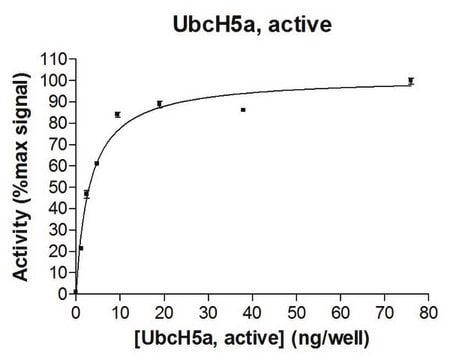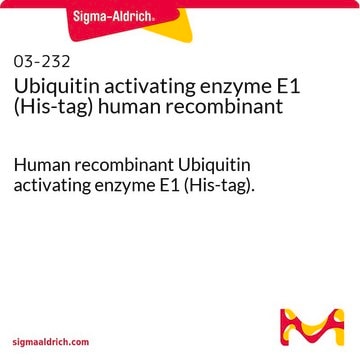U5507
Ubiquitin human
recombinant, expressed in E. coli (N-terminal histidine tagged)
Selecione um tamanho
Selecione um tamanho
About This Item
Produtos recomendados
fonte biológica
human
Nível de qualidade
recombinante
expressed in E. coli (N-terminal histidine tagged)
Ensaio
≥95% (GE)
Formulário
lyophilized powder
peso molecular
10.7 kDa
técnica(s)
ligand binding assay: suitable
solubilidade
Tris-HCl, pH 7.5: 1.0—1.10 mg/mL, clear to slightly hazy, colorless
adequação
suitable for molecular biology
temperatura de armazenamento
−20°C
Procurando produtos similares? Visita Guia de comparação de produtos
Descrição geral
Ubiquitin is a highly conserved protein composed of 76 amino acids, and it is expressed universally in all eukaryotes, ranging from yeast to humans.[1]
Aplicação
- as a substrate in in vitro ubiquitination assays[4]
- as substrate in ADP-ribosylation and ubiquitylation assays[5]
- to supplement the 64 ng of endogenous ubiquitin in fresh blood for experiment grouping in order to study its potential clinical impact on cancer prognosis[6]
Ações bioquímicas/fisiológicas
Nota de preparo
Código de classe de armazenamento
11 - Combustible Solids
Classe de risco de água (WGK)
WGK 3
Ponto de fulgor (°F)
Not applicable
Ponto de fulgor (°C)
Not applicable
Equipamento de proteção individual
Eyeshields, Gloves, type N95 (US)
Escolha uma das versões mais recentes:
Certificados de análise (COA)
Não está vendo a versão correta?
Se precisar de uma versão específica, você pode procurar um certificado específico pelo número do lote ou da remessa.
Já possui este produto?
Encontre a documentação dos produtos que você adquiriu recentemente na biblioteca de documentos.
Os clientes também visualizaram
Active Filters
Nossa equipe de cientistas tem experiência em todas as áreas de pesquisa, incluindo Life Sciences, ciência de materiais, síntese química, cromatografia, química analítica e muitas outras.
Entre em contato com a assistência técnica









